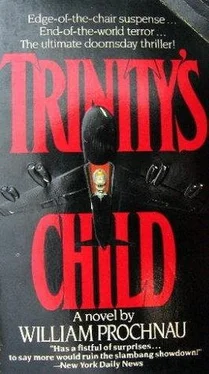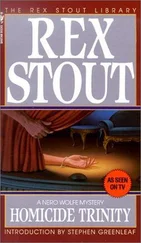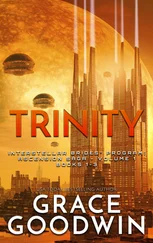Kazakhs flicked the red terrain-monitoring radar on and off again in front of him. The computer converted the handful of ground personnel and the flight hangars outside the plane into sharp-edged pinnacles that moved from right to left across the screen, like a wildly gyrating stock-market chart. When the ragged obstructions reached the left edge, they reformed and raced left to right. He could read their crazy jumble the way a concertmaster reads musical scores, catching every inflection. In the corner he checked the elevation reading for the Fairchild runways, coordinating it to sea level on another altimeter.
“Two. Four. Five. Seven,” he said.
“Two. Four. Five. Seven,” Moreau repeated, reading the numbers off her own instruments.
“Los Angeles moratorium?” he asked.
“Angelus mortuorum,” she replied brusquely, not liking the interruption of the routine.
“What the hell is that, college girl?”
“Grade-school Latin, commander. It means ‘angel of death.’”
Kazakhs glanced sideways at Moreau’s ghostly image reflected in her red radar screen. He laughed. So you put the wrath of the church in our haunted Irishman. Spooked it out of him. Not bad. I figured you’d like the ball-breaking approach better.”
“Fuck off, Kazakhs. We need to get the poor bastard out of here. You’re the one who thinks all this is real every time we’re out here. Get your fucking job done.”
“You’d better think it’s real, angel. It’s simpler that way. That means the missiles are on their way down. And you, death bird, have the codes.”
Kazakhs returned to his routine, hunching over the yellow clutter of his flight-panel lights, nudging the engine revolutions carefully, checking the flaps, spinning past scores of routine oil-pressure, water, fuel, altimeter, oxygen gauges he normally would be doing in tandem with Moreau. Hastily he ran a final check on the bright yellow squares at his right, just beyond the throttles. “Bomb Doors Not Latched,” read one. “Bomb Doors Open,” read the next. “Bomb Doors Not Closed and Locked,” read the fourth. The third, which remained dark, read: “Bombs Released.” One by one the yellow lights blipped off as he secured the doors. He felt tense, but good. From the babble coming from outside the plane he could tell that despite the trouble, he remained in flight sequence. First. As squadron leader.
“Code check ready, commander,” Halupalai’s formal voice cut in.
“Code check ready,” Kazakhs repeated.
Halupalai began methodically. “Zero. Zero. Alpha. Hotel. One. Nin-er. Zero. Three. Quebec. Nin-er. Quebec.”
Kazakhs repeated the calls carefully, punching each into the new decoder to which Omaha flashed the sequence during each alert. The hair crawled on his arms.
“Sequence two,” he requested of Halupalai.
“Zebra. Zebra. Zebra. Six. Zero. Two. Nin-er. Nin-er. Foxtrot.”
Kazakhs froze. Something was wrong. Sequence two was one digit off a go. They never made them that close, unless SAC was into one of its cockeyed new PRP tests.
“Copilot,” he ordered. “Recheck sequence two.”
“Zebra. Zero. Zebra—” Moreau began.
Kazakhs interrupted her instantly. “Code word!” he demanded of Halupalai.
“Trinity.”
Gawd, the pilot’s mind raced, thirty years of daily codeword changes, and he got Trinity.
“Voice confirmation,” Kazakhs said into the direct channel to the tower. “Sequence one, go. Sequence two, go. Code: Trinity. Confirm.”
“Confirm Trinity,” a solemn voice, touched with a Bronx accent, replied. “Confirm go.”
Inside the Buff, the radio went deathly silent. Then Kazakhs placed his hands on the throttles and began the crew check.
“Copilot ready?”
“Ready,” Moreau replied.
“Nav ready?”
“Ready,” Tyler responded.
The voice from the control tower cut in, its tone hysterically different. “Go! For God’s sake, man, go! Get your bloody ass out of here. Go! Go! Go! This one is no shit!”
The voice almost wept. Kazakhs stopped the crew check and hit the throttles. He was calm, feeling the dance of danger he loved.
“Melech hamafis,” the tower voice whispered.
The words sailed past Kazakhs. He was rolling now, the engines growing deafening in their roar.
“Any questions?” he radioed to his crewmates, the tone commanding and nonchalant.
“Any jokes?” he asked.
BOPHU…
The President opened his eyes slowly.
THAT…
He strained to focus, lost everything in a blur, then focused again.
SWANA
The lettering, in large black capitals, formed fuzzily in front of him in a slightly skewed, dream-world eye chart reading vertically. His legs felt leaden. His head seemed propped high on a soft pillow. He tried to move and felt the pillow ripple like Jell-O. He turned and immediately became violently sick. His head rested on his appointment secretary’s belly. A huge gray file cabinet, still locked tight with its contents marked “TOP SECRET” in stark red, lay across his old friend’s face and chest. Red also seeped out from beneath the cabinet, rivulets edging across the pillow toward the President’s head. He tried to wrench away, but Bophuthatswana, and years of American intelligence on the tiny all-black African nation, pinned his legs to the floor in a similar gray cabinet. Sedgwick, the duty officer, was pulling at the file cabinet to free him.
“Hang tough, Mr. President,” the duty officer said. “Have you out in a minute.”
As Sedgwick heaved at the file cabinet, the President scanned the Situation Room. His last formal briefing here had been confident and absolutely secure, with elaborately locked doors sealing off the rest of the world. Now the chairs were scattered about, the conference table cracked, files scattered, the main door sprung closed, jammed on its hinges. Pieces of acoustical ceiling wobbled loosely above him, as if caught in a breeze. The Zulu clock was frozen on 0608—eight minutes past one in the morning. Still, the room was far from destroyed. In one corner the Emergency War Orders officer stood unruffled, his suit hardly mussed, his black briefcase intact. He wore his usual blank expression. Others were moving about the room methodically.
“So where’d we get it?” the President asked.
“Not exactly sure,” Sedgwick replied, finally rolling the cabinet off his legs. “Somewhere northwest of here. Definitely not southeast at Andrews. Not close. Not far. Coupla miles.”
“Why are we alive?”
He immediately regretted the question, for he knew his old friend, who seemed to be the only casualty, was not. A wave of dizziness hit him. But his mind was clearer now. He struggled painfully to pull away from the body.
“Take it easy, Mr. President. The explosion was relatively small. I think they were telling the truth about a ground burst, which as you know, digs a big hole but concentrates the damage. Not like Hiroshima. They were trying to be surgical. That’s for sure.”
“So we’ve got a big hole a couple of miles from the White House. What else?”
“Well, unless it landed in the park, it had to strike a residential area, upper Northwest Washington probably. Out near the cathedral, I’d guess. Maybe as far as Chevy Chase, but I doubt it.”
“And killed a lot of people.”
“At this time of night, probably fifty thousand, maybe more. Hard to say. The big apartment buildings absorb the shock wave fairly quickly. That’s why we’re okay.”
The President did a quick mental tally. The area was old, established Washington. He had lived there as a young congressman. He guessed a fourth of the Congress lived in the area. So did several members of his Cabinet. And a helluva lot of the national press corps, he thought ruefully. They loved the old oak-lined streets, the quick access down Connecticut and Wisconsin avenues to the power centers of the capital.
Читать дальше












